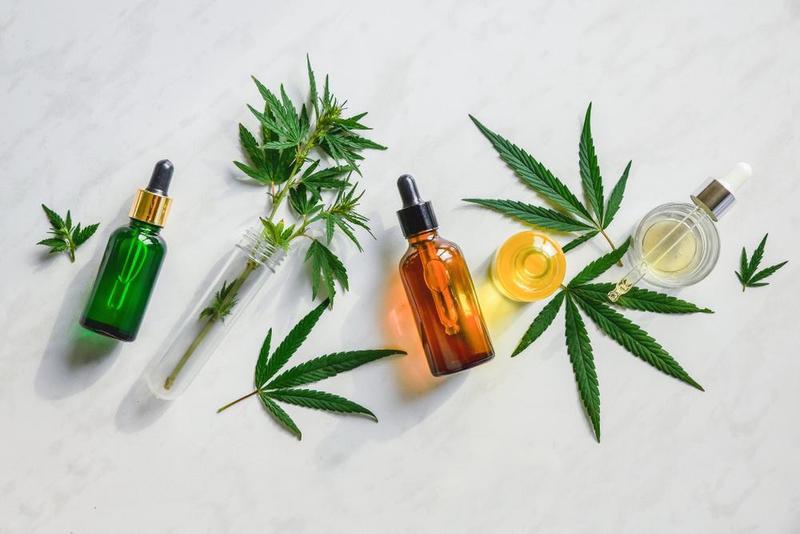Real Facts about CBD: Is there a risk for health?
Real Facts about CBD: Is there a risk for health?
Recently, there’s been a lot of talk around CBD (or Cannabidiol oil – a herbal treatment that uses extracts from cannabis plants) – some praise its curing abilities of various diseases including cancer, while others label it as dangerous and more of a hard core recreational drug.
In 2018, the U.S. Food and Drug Administration (FDA) approved the use of CBD to treat rare form of childhood seizures. The FDA Commissioner, Scott Gottlieb said:
“This product approval demonstrates that advancing sound scientific research to investigate ingredients derived from marijuana can lead to important therapies. This new treatment provides new options for patients”.
We decided to take a deeper look into CBD and clear up the air through a more scientific approach.
What is CBD?
CBD means Cannabidiol and is one of the 104 chemical compounds found in the plant Cannabis sativa, or marijuana. The main compound of this plant is Tetrahydrocannabinol (THC) which results in the “Getting High” sensation in people. Unlike THC, cannabidiol is not psychoactive so it doesn’t have any mind-altering consequences.
CBD is generally used for its health benefits in the form of an oil made by extracting cannabidiol from the plant and mixing a few drops with a carrier oil, like coconut or jojoba oil.
Benefits of CBD oil are currently being studied in many universities as more and more people are reporting their success stories. Some benefits have already been confirmed by rigorous research and are listed below.
Benefits of CBD
1. Pain Relief
A 2018 study published in the Journal of Pain Research found cannabidiol effective in relieving pain:
“Fifteen of the 18 trials demonstrated a significant analgesic effect of cannabinoids as compared to placebo. There is evidence that cannabinoids are safe and modestly effective in neuropathic pain and also for relieving pain in patients with malignant diseases”.
In the human body, there is an endocannabinoid system that helps regulate sleep, immune system, pain and appetite. The way CBD reduces pain is by enhancing endocannabinoid receptor activity.
Multiple studies have pointed out a joint effectiveness of CBD and THC in treating multiple sclerosis and arthritis. Several countries approved an oral spray Sativex as it reduces pain significantly.
2. Reducing Depression & Anxiety
A 2016 study published in The Permanente Journal (a peer-reviewed journal of medical science, social science in medicine, and medical humanities) demonstrated cannabidiol’s effectiveness in dealing with anxiety, depression and insomnia as part of posttraumatic stress disorder:
“Cannabidiol oil, an increasingly popular treatment of anxiety and sleep issues, has been documented as being an effective alternative to pharmaceutical medications. This case study provides clinical data that support the use of cannabidiol oil as a safe treatment for reducing anxiety and improving sleep in a young girl with posttraumatic stress disorder”.
Several other studies support this finding and say that CBD also acts on the brain’s receptors for serotonin that controls mood and behaviour with others.
3. Reducing Acne
According to several studies, CBD can reduce acne. Acne is a very widespread condition and is caused by inflammation and overproduction of sebum, an oily substance in the skin.
Here is what was found in the study published in The Journal of Clinical Investigation:
“Collectively, our findings suggest that, due to the combined lipostatic, antiproliferative, and anti-inflammatory effects, CBD has potential as a promising therapeutic agent for the treatment of acne vulgaris”.
Cannabidiol is currently being extensively tested for the potential use in treatments of other conditions such as Parkinson’s disease, Huntington’s disease, glaucoma, Alzheimer’s disease, type 1 diabetes, cancer, neurological disorders, heart disorders and many others.
How to use CBD
An important thing to remember is that even though CBD seems safe and highly beneficial for health, it is still being researched and no comprehensive evidence exists just yet. If you decide to try CBD, talk to a health practitioner first.
CBD oil can be used in different ways depending on your goals and condition. CBD can be an ingredient in food or a drink, the oil can also be taken orally with a dropper. There are capsules, cream and paste that can be rubbed into the skin. CBD can also come in a spray application.
To determine the best way for you to take CBD, consult your doctor. The choice will depend on your medical history and condition, age, body weight, and needed product concentration.
Having discussed the dosage, form and potential risks with your doctor, take your time to compare different brands producing CBD and choose what’s best for you.
There is a selection of high-quality CBD of different brands here.
Be the first to post a message!
